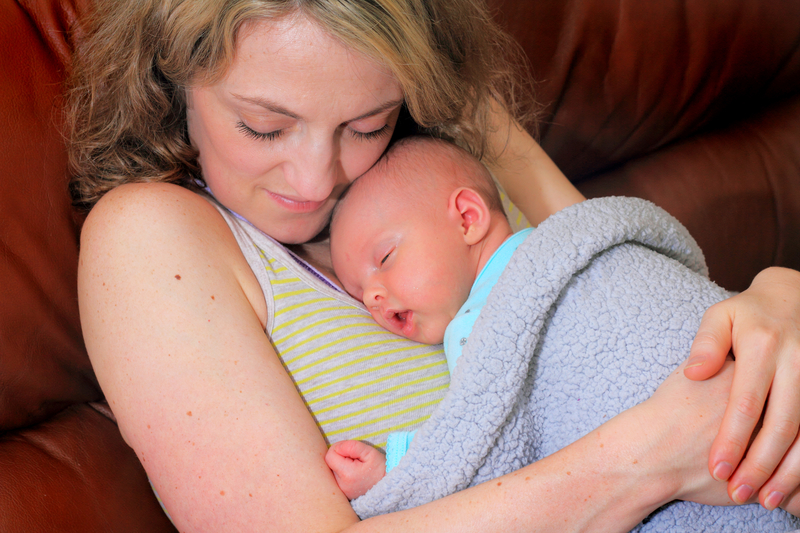“Don’t hold your baby too often, it’s not good for the baby†– We have all heard this warning from more than one annoying person. Apparently it is believed that cuddling or holding babies too often may disrupt their growth and will also make them glued to us for a long time.
But this isn’t true. Study shows that physical touch and emotional engagement like hugs and cuddling boost early childhood development. Scientific American, in of their parent & infant studies found that many children who not had enough emotional and physical attention had to deal with behavioural, emotional and social problems as adults.
A few months ago, Scientific American associated with Ann Bigelow, professor and researcher of Developmental Psychology at St. Francis Xavier University in Antigonish, Nova Scotia. Ann Bigelow has been researching on the subject whether parent’s behaviour has any effect on infant’s physical and mental development?

Her research outcome was truly incredible. Skin to skin contact not only makes a baby feel secure but it has an acute association with baby’s neurodevelopment. Cuddling helps improve IQ and lowers the aggression rates in babies. It has positive effect in breast feeding as well.
Here’s some of the questions she answered during an interview:
1. In what way does cuddling help infants?
Especially in the first weeks after birth, cuddling or skin to skin touch calms the baby. It also improves their sleep cycle. Since they are calmer and sleep better, their brain development is heightened.
2. Does it benefit the parents?
Yes, skin contact reduces the stress levels in moms. Moms have low depression levels and seem to be more sensitive and attuned with baby’s cues. Cuddling improves quality of communication. Babies are more responsive in the first 3 months; they also start to recognise their mothers earlier. The effects are same for fathers too.
3. What is the goodness in a Mothers’ Touch?
This part is quite interesting. Apparently, mother’s skin temperature on their chest is lightly higher by a degree or two from the rest of her body. This phenomenon creates a natural warming area for the babies.
Mothers have ther more gulation ability for the baby, i.e. if the baby’s temperature rises, mother’s drops and if the baby’s temperature drops, mother’s rises. Incredible connection, but it is a scientific process developed in the womb.
4. What happens when we cuddle the baby?
The new born was in a restricted, warm and dark place for nine months. So anything that stimulates a similar environment comforts them. When mom and baby connect, mother releases oxytocin which instantly uplifts her mood. Further, the warmth of her body, her heartbeat and her embrace reminds baby of the familiarity of womb,which inevitably relaxes and soothes her.
Another Study that Shows the Impeccable Goodness of Cuddling
Current Biology added another fascinating bit of research to the subject – Importance of skin to skin touch. According to the report, scientists from Nationwide Children’s Hospital in Columbus, Ohio studied 125 infants, both premature and full term. They observed and compared different responses to touch of these infants.
To evaluate how the new-borns responded, the researchers measured their brain responses to a light puff of air and a ‘fake’ puff of air. Puff of air doesn’t generate enough pressure to activate brain receptors. So, if babies can respond to this touch, they can also learn the different senses and feelings such as difference between mom’s skin, dad’s stubbly cheek and a hard object.
Here’s listed the findings from the research
- Premature babies (24 – 36 weeks gestation) have reduced response to parent’s touch than full term babies
- Premature babies or preemies who had to endure painful medical procedures post birth also showed little response to skin to skin touch
- However, preterm who were exposed to “gentle touch†either from the parents, doctors or caregivers, in fact showed greater level of response than babies who did not feel any contact at all.
- These gentle touches are called supportive touches which actually have positive impacts on how the neuro-system develops and processes. This sense is necessary to boost learning skills, emotional and social connections.
The lead study author of this research, Dr. Nathalie Maire also added, “What is surprising is that painful procedures which are known to impact processing of pain in the brain also impact processing of touch, in a negative wayâ€.
In the weeks immediately after birth, premature babies often have a difficult time in swallowing, breathing and digesting food. They may also face long term challenges including impaired vision and hearing and poor cognitive, social and behavioural skills.
Therefore, Dr, Maire states that touch or cuddling is one of the important nourishments that an infant, especially who’s a preterm baby needs to develop without any complications.





